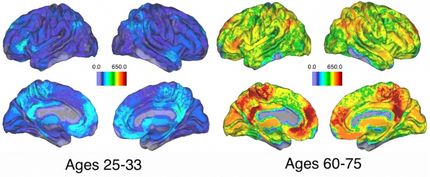Study shows what your favourite film genres reveal about your brain
Advertisement
Crime films, action films, comedies, or documentaries? A person's favourite film genre reveals a lot about how their brain works. This is the finding of a new study led by the Martin Luther University Halle-Wittenberg (MLU) that compared data on film preferences with recordings of the brain activity of around 260 people. Fans of action films and comedies reacted very strongly to negative emotional stimuli, while participants who favoured documentaries or crime films and thrillers had a significantly weaker reaction. The results were published in the journal "Frontiers in Behavioral Neuroscience".
Films are an interesting phenomenon for psychologists. "Films are so fascinating because they not only depict every human emotion, but they also evoke them. Negative emotions, such as anger or fear, play a central role in many films," says Esther Zwiky, a psychologist at MLU. Up until recently, relatively little was known about the connection between film preferences and the processing of negative emotions in the brain.
The researchers investigated this interplay in detail by analysing data from 257 people. As part of a larger study, the respondents also provided information about their film preferences. In addition, the participants’ brain activity was analysed using functional magnetic resonance imaging (fMRI). Subjects were shown fearful or angry faces and geometric shapes while lying in an MRI machine. "With this established test, we can measure how the brain processes emotional stimuli," explains Zwiky.
The researchers focused on two areas of the brain. First, the amygdala, which is responsible for processing vital emotions. "The amygdala can trigger a fight-or-flight reaction in response to threats," says Zwiky. The team also investigated the neuronal activity of the nucleus accumbens, known as the reward centre in the brain.
The results were surprising: "We found that fans of action films showed the strongest reactions in both areas. We hadn’t expected this, as action films typically provide many stimuli. Thus, it would have made more sense if action fans had been less easy to stimulate," Zwiky continues. However, the results suggest that action film aficionados are particularly susceptible to emotional stimuli and find this stimulation appealing. The team found similar brain activity in the brains of people who preferred comedies. A different picture emerged, however, for fans of crime films or thrillers and documentaries. Here, both areas of the brain reacted significantly less to the emotional stimuli than in the other groups of participants. "It appears that people choose the film genres that most optimally stimulate their brains," concludes Zwiky.
Original publication
Esther Zwiky, Philine König, Rebekka Maria Herrmann, Antonia Küttner, Janine Selle, Lena Esther Ptasczynski, Konrad Schöniger, Mareike Rutenkröger, Verena Enneking, Tiana Borgers, Melissa Klug, Katharina Dohm, Elisabeth J Leehr, Jochen Bauer, Udo Dannlowski, Ronny Redlich; "How movies move us – movie preferences are linked to differences in neuronal emotion processing of fear and anger: an fMRI study"; Frontiers in Behavioral Neuroscience, Volume 18, 2024-6-4
























































